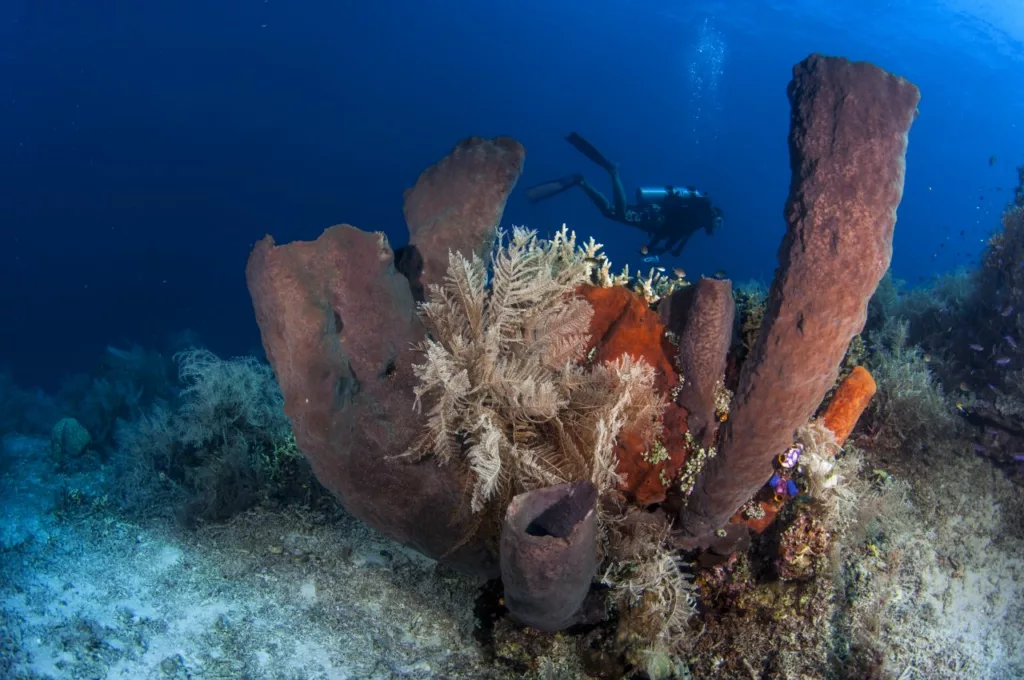UMT | Portal Rasmi Universiti Malaysia Terengganu

Sunday, 22/11/2020
Share This Article :
By Prof. Madya Dr. Hasrizal Shaari
photo : Ismadi Ismail
One of the main contributors to Malaysia’s economy has been tourism. In 2019, government revenues from tourism amounted to RM86.14 billion. Seeing the growth in this industry, Malaysian government in its effort to generate more income engaged in a series of various promotional campaigns.
However, the success tourism industry was experiencing failed to last very long. The positive momentum it predicted to spill over to 2020 was put to a halt by the Covid-19 pandemic that quickly hit every corner of the world.
One of the components of tourism industry badly affected by the pandemic is tourism activities on popular destination islands in the country, such as Sipadan, Mabul, Redang, Perhentian, and Tioman. These islands have become the main attractions for tourists from local regions and overseas countries due to various coral reef biodiversities available there.
Scientifically, coral reefs are unique marine organisms due to their dual functionalities, as animals and also plants. This feature is formed through a symbiotic relationship between a colony of small animals such as sea anemones that exist on calcium carbonate hard frame and zooxanthellae symbiotic algae that carry out the process of photosynthesis.
The presence of zooxanthellae gives coral reefs beautiful and brilliant colour.
But at the beginning of the year 2020, the beauty of coral reefs could not be witnessed and appreciated by enthusiastic divers. This was all due to a series of movement control order that was enforced one after another, starting with the first movement control order, followed by recovery movement control order, then conditional movement control order.
From economic perspective, these government measures have lent a critical impact to the country’s tourism industry, especially the local segment.
However, from ecological perspective, these measures have allowed the coral reef ecosystem to have a long period of rest.
The resting period for coral reef ecosystem becomes even longer with the arrival of the monsoon season.
Normally the monsoon season will occur between November and February. During this time, almost all hotels and accommodations on destination islands in the East Coast will temporarily cease operation.
Considering the extraordinarily long resting period, most of the coral reef ecosystems near destination islands are expected to undergo a phase of self-recovery.
According to Dr Lee Jen Nie, coral reef biology expert from Universiti Malaysia Terengganu (UMT), the period during the movement control order has given some room for coral reef ecosystem to recover. Coral reef fishes will have ample time to do the biological cleaning more effectively.
No tourists mean no outside food given to these coral reef fishes.
This forces coral reef fishes to rely solely on food that exists on the surface of coral reefs. Indirectly, this helps the process of coral reef surface cleaning in a natural way.
According to Dr Jen Nie, the natural cleaning process also allows zooxanthellae symbiotic algae to complete the photosynthesis more efficiently and subsequently create better symbiotic relationship with its symbiote, the sea anemones.
The public may be assuming that feeding coral reef fishes will not cause any issues towards the environment. However, that assumption is wrong, as such act can lead to negative effects on coral reef ecosystem.
Let coral reef fishes do their job effectively, to help improve the sustainability and the wellbeing of coral reefs in our waters. If we do not feed them, they will not be hungry because the ecosystem has been their home since they were little fries.
To coral reef ecosystem, may the year 2020 provide the opportunity for a long rest that gives ample time for self-recovery process.
To us, users of the environment, may we become proponents of more sustainable tourism activities, to ensure that coral reefs remain healthy.
Translated by
Corporate Communication Centre
Universiti Malaysia Terengganu
Original version in Malay by
Assoc. Prof. Dr Hasrizal Shaari
Director, Centre for Research and Field Services
Universiti Malaysia Terengganu